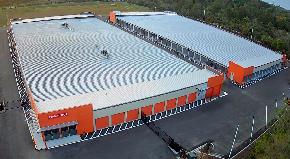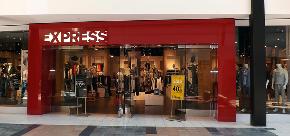Homewood Suites is not slowing down even though the overall economy is having problems. The Hilton brand of extended-stay hotels has about 130 planned developments by franchisees on top of its 250 already across the country. The chain is doing well because some industries have their employees travel no matter what, says Rebecca Wyatt, Homewood’s senior vice president of brand marketing. In fact, the company is seeing growth in new markets, such as urban areas, she says. Wyatt recently spoke with GlobeSt.com about her chain’s strategy during the downturn and other issues.
GlobeSt.com: Has the downturn at all impacted your development plans?
Wyatt: We’re still seeing deals. I would say they are a bit slower, but we’re still about 20% ahead from 2007, although it has slowed down a little over the last month or so. The reason is that focused service is easier to get financing for; and many of our owners are long time hotel people who have been doing this for a while and are really used to fluctuations in the economy and tend to have relationships with local banks.
They’re all having to put more equity into their deals, but I’ve been spending a lot of time with owners lately, and many of them have the feeling that this kind of economy is actually a good time to begin to find sites and establish a presence in markets that you want to get into. That’s a bit truer for focused service that upscale. In the luxury business, it’s a little more difficult to get money right now. That’s a much tougher place to be.
GlobeSt.com: So extended stay is faring well right now?
Wyatt: Extended stay does better than most, but focused service as a whole continues to develop pretty steadily. But you can never tell what’s going to happen in the world. Generally we weather quite well through these sorts of things by virtue of the fact that we have smaller organizations and individuals that own us. There’s not as many big companies, and we’re more affordable to build. A lot of little things come together.
GlobeSt.com: Have you seen any slowdown in the amount of people interested in becoming franchisees or was everything in place before the crisis?
Wyatt: We have a really strong network in place, so that is a huge help for us. We have a very aggressive development team across the country, and they really know just about anyone who’s developing hotels in our segment and what sites are available. I was just at a development forum with a group of about 20 potential owners that are ready to look at sites. Before that, I was in Baltimore with about 40 owners. That doesn’t mean the every one of them is going to do a deal, but there is still significant interest and action going on. We, by no means, are sitting still.
GlobeSt.com: Have you tested any new concepts or prototypes during your expansion?
Wyatt: Not in particular. There are some things that we are working on that just help with our customer service. We’re launching a new food and beverage program early next year that will give us a lot more consistent food and beverage offering across the brand. And we’re continuing with the initiatives that are important to our customers. It’s a real focus for us, and the Hilton family as a whole, to keep doing things that are important to our guests and not have them suffer because the economy is.
GlobeSt.com: Are you doing any marketing pushes right now to attract the consumer?
Wyatt: A lot of what Homewood does is online these days. That works really well for us because we can reach a really focused, targeted segment, those people that are really doing extended-stay travel. We try to be careful not to go down a path of super discounting because people begin to question the value of your brand if all of a sudden you’re worth a lot less than you were last year. The people that are traveling are still going to continue to travel. The people that aren’t — you almost can’t go low enough to get those people into your hotels. Smith Travel and other organizations like that are trying to convince the industry that you don’t need to slash your rates dramatically.
But one of the things we do is help our hotels know where to sell. It’s OK to sell some discounts, but you want to do it selectively. If you want to have some rooms on Priceline and maybe give more inventory to other third parties than you typically do, that is a way of discounting, but it’s not throwing an ad in the paper and saying 30% off. Making your property more available in more places is an important strategy for us.
GlobeSt.com: How are you choosing your locations? Are you looking at types of sites you weren’t looking at before?
Wyatt: We have been moving with more urban locations over the last several years. It’s nothing that has to do with the economy now, but we’ve just found a much bigger base of extended stay in urban locations than we realized. There have been some real interesting adaptive reuse projects that have been able to come our way that have turned out beautifully. Our Downtown Nashville property was an old office building, opened about six months ago, and they’re already making money and turning people away. That one happens to be in a perfect spot, but we’re definitely seeing more urban, adaptive reuse projects.
GlobeSt.com: Are problems in the airline industry impacting your business?
Wyatt: The kind of travel that our guests do is a little more stable. It’s things that have to happen any way, and in some cases, even increase. No one can not have an audit. Consultants tend to be brought in en lieu of hiring new folks. There are a lot of projects that you tend to contract out instead of hiring. We do tend to see a lot more of that in this particular segment.
GlobeSt.com: What do you think is the future of the extended-stay segment?
Wyatt: We’re going to continue to be strong. It’s one of the segments where people continue to build. Over time we’re going to really have to watch markets and make sure we don’t overbuild. But there continues to be great demand, and as long as we’re smart as an industry, we’re going to be a successful segment for a pretty long time.





 Copyright © 2024 ALM Global, LLC. All Rights Reserved.
Copyright © 2024 ALM Global, LLC. All Rights Reserved.











